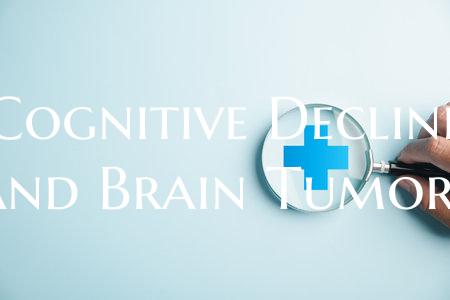
Cognitive Decline and Brain Tumors
Introduction: Cognitive decline, often associated with aging, can be a concerning issue for many individuals. While this decline can occur due to various factors, one often overlooked cause is the presence of brain tumors. Understanding the relationship between cognitive decline and brain tumors is crucial for early detection and effective management of these conditions.
The Impact of Brain Tumors on Cognitive Function: Brain tumors can directly impact cognitive function by affecting areas of the brain responsible for memory, attention, and reasoning. Depending on the location and size of the tumor, individuals may experience a range of cognitive symptoms, including memory loss, confusion, difficulty concentrating, and impaired decision-making. These cognitive changes can significantly affect a person's quality of life and daily functioning.
Types of Brain Tumors Linked to Cognitive Decline: Certain types of brain tumors are more likely to be associated with cognitive decline. For instance, tumors located in areas such as the frontal lobe, temporal lobe, or hippocampus are more likely to cause cognitive symptoms due to their proximity to regions critical for cognitive processing. Furthermore, malignant tumors can also lead to more rapid cognitive decline compared to benign tumors.
Early Warning Signs: Recognizing the early warning signs of cognitive decline related to brain tumors is essential for prompt intervention. If individuals notice persistent changes in their cognitive abilities, such as forgetfulness, language difficulties, or behavioral changes, it is crucial to consult a healthcare provider for further evaluation. Diagnostic tests, including imaging studies like MRI or CT scans, can help identify the presence of a brain tumor and assess its impact on cognitive function.
Treatment Approaches: Treatment of brain tumors associated with cognitive decline involves a multidisciplinary approach, including neurosurgery, radiation therapy, chemotherapy, and supportive care. The goal of treatment is not only to manage the tumor but also to preserve or improve cognitive function. Rehabilitation programs focusing on cognitive training, speech therapy, and occupational therapy can be beneficial in restoring cognitive abilities and enhancing quality of life for affected individuals.
Conclusion: In conclusion, understanding the link between cognitive decline and brain tumors is crucial for early detection and effective management of these conditions. By recognizing the impact of brain tumors on cognitive function, individuals and healthcare providers can work together to address cognitive symptoms, improve quality of life, and optimize treatment outcomes for affected individuals. Early intervention and a comprehensive treatment approach are key in supporting individuals with brain tumors experiencing cognitive decline.